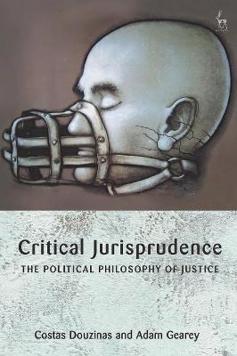Critical Jurisprudence: The Political Philosophy of Justice

Critical Jurisprudence: The Political Philosophy of Justice
Description
Jurisprudence is the prudence of jus, law's consciousness and conscience. Throughout history, when thinkers wanted to contemplate the organisation of society or the relationship between authority and the subject, they turned to law. All great philosophers, from Plato to Hobbes, Kant, Hegel, Marx and Weber had either studied the law or had a deep understanding of legal operations. But jurisprudence is also the conscience of law, the exploration of law's justice and of an ideal law or equity at the bar of which state law is always judged. Jurisprudence brings together 'is' and 'ought', the positive and the normative, law and justice. But after a long process of decay, legal theory is today characterised by cognitive and moral poverty. Jurisprudence has become restricted and academically peripheral, a guidebook to technocratic legalism and a legitimation of the existent. Critical jurisprudence returns to the classical tradition of a general philosophy of law and adopts a much wider concept of legality. It is concerned both with posited law and with the law of the law.